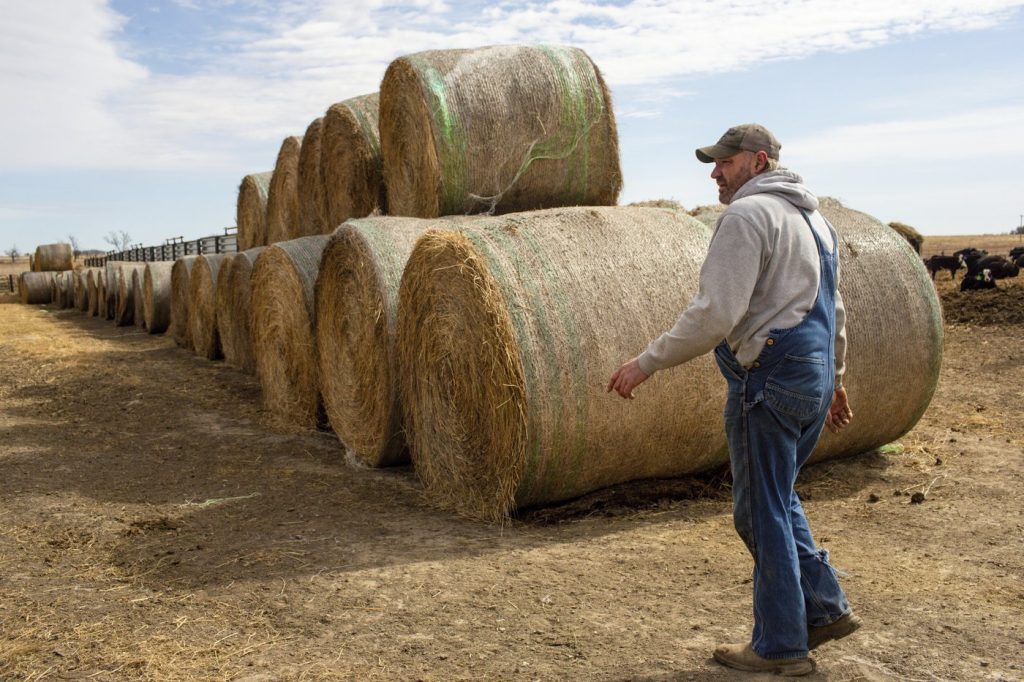MANSFIELD, S.D. (AP) — Jared Bossly, a farmer in South Dakota, was in the process of planting soybeans one spring night in 2023 when he discovered a sheriff's vehicle at the edge of his property. His instincts suggested that the visit was not a friendly one. He was correct; the sheriff's deputy served him with court papers from Summit Carbon Solutions, a company proposing a carbon pipeline, intending to invoke eminent domain to access his land.
This incident was not isolated; Bossly was one among many landowners facing legal action from Summit as the company sought to secure land for its ambitious nearly $9 billion pipeline project. This pipeline aims to transport carbon dioxide across five states in the Midwest and has faced considerable backlash from local farmers and landowners. A review by Lee Enterprises and The Associated Press revealed that Summit undertook 232 legal actions against landowners in South Dakota, North Dakota, and Iowa, with all 156 eminent domain lawsuits filed in South Dakota alone, highlighting a contentious legal strategy.
Summit Carbon Solutions, represented by spokesperson Sabrina Zenor, claims that their priority is to secure voluntary agreements with landowners. Zenor stated that condemnation is a legal recourse they prefer to avoid, even as they reflected on reaching agreements with thousands of landowners without resorting to litigation. The projected 2,500 miles of pipeline would connect to 57 ethanol plants, capturing carbon dioxide emissions and ultimately storing them underground in North Dakota, a process supported by federal tax credits intended to reduce carbon emissions.
Despite initial support from some local entities, Summit's aggressive legal strategies prompted a robust opposition movement led by landowners like Bossly. The political climate shifted considerably when the South Dakota governor signed legislation in March 2023 that restricted the use of eminent domain for carbon pipelines, putting the future of the project in jeopardy. Farmers described aggressive tactics by Summit's representatives, including threats of litigation and unwelcome surveys on their properties, which only intensified local resistance.
Landowners' accounts, such as that of 69-year-old LeRoy Braun from Spink County, detailed intimidation tactics, with Summit's agents threatening immediate legal action if their terms were not accepted. This atmosphere of dissent culminated in a detailed backlash against Summit, leading to significant political ramifications in the region, including the ousting of incumbent lawmakers in favor of candidates opposing the pipeline.
Interestingly, this opposition transcended traditional political divides, with farmers from staunchly Republican areas uniting with environmental advocates against the pipeline. As the pipeline proposal faced increasing scrutiny and legal challenges, Summit's tactics began to backfire. Key voting measures were rejected in South Dakota that aimed to consolidate authority over pipeline regulations; the political landscape shifted dramatically with the election of new lawmakers opposed to Summit's project.
Amid the ongoing dispute, stories of individual landowners like Bossly emerged in the media, transforming him into a symbol of resistance against corporate overreach. His experience resonated broadly, gaining traction across social media and public gatherings, where he often spoke passionately against the project. As protests grew, Summit continued filing lawsuits until late August 2023 when they paused their legal actions following the South Dakota Public Utilities Commission's rejection of their permit application.
Support for the pipeline remained divided. While some farmers like Walt Bones championed the economic advantages the project could bring, many voiced concerns over safety and property rights. The contention over eminent domain exemplified a broader struggle between corporate interests and local autonomy, raising pressing questions about landowner rights in South Dakota amid a rapidly changing climate policy landscape.
The conflict over the carbon pipeline represents not only a legal battle but also a significant shift in community values and political alignments in the region. With Summit's efforts to navigate this opposition still ongoing, the future of the project remains uncertain. Even certain supporters acknowledged the company's missteps in their approach, advocating for a more respectful dialogue with local landowners to build trust and facilitate cooperation moving forward.










